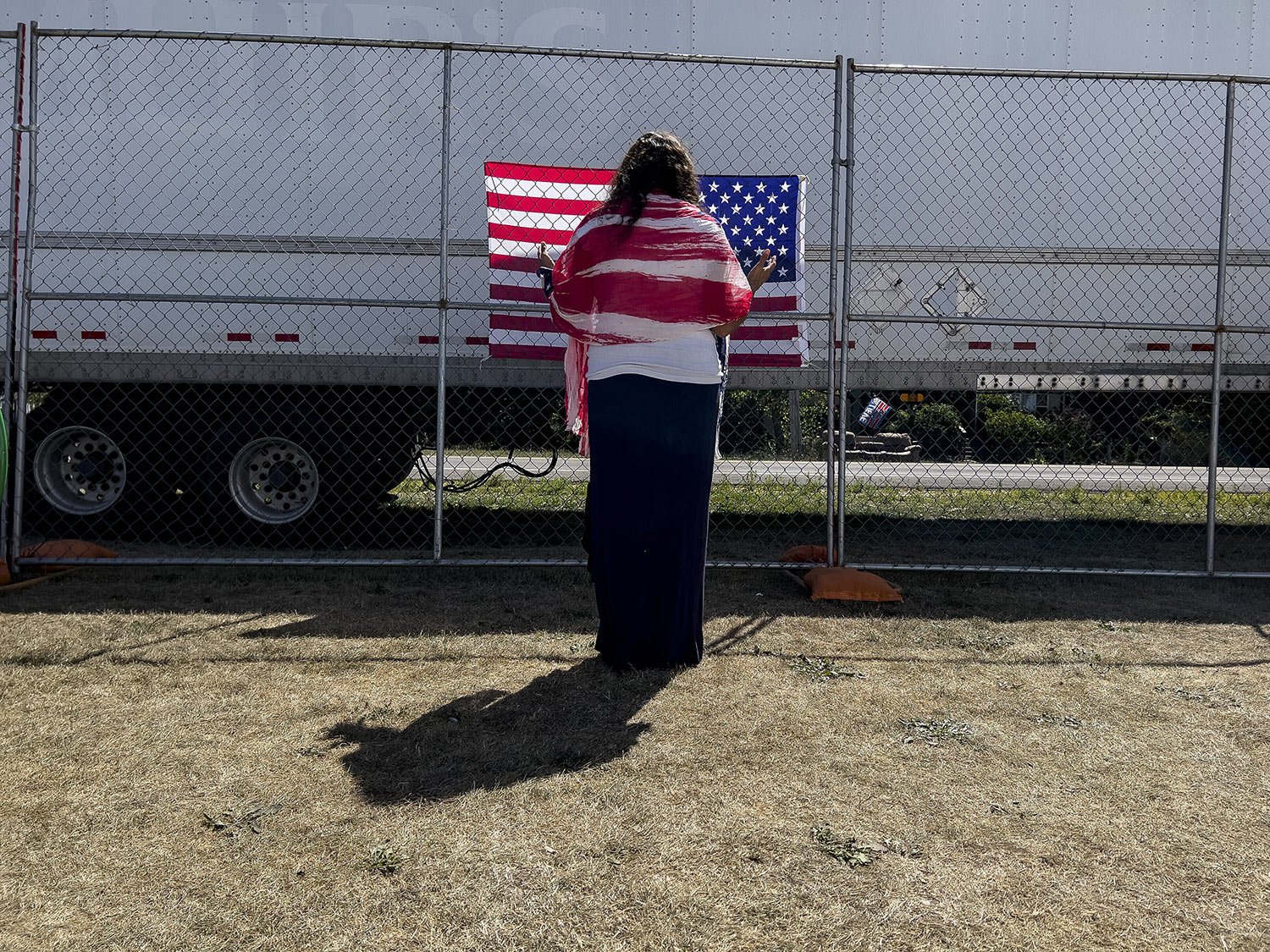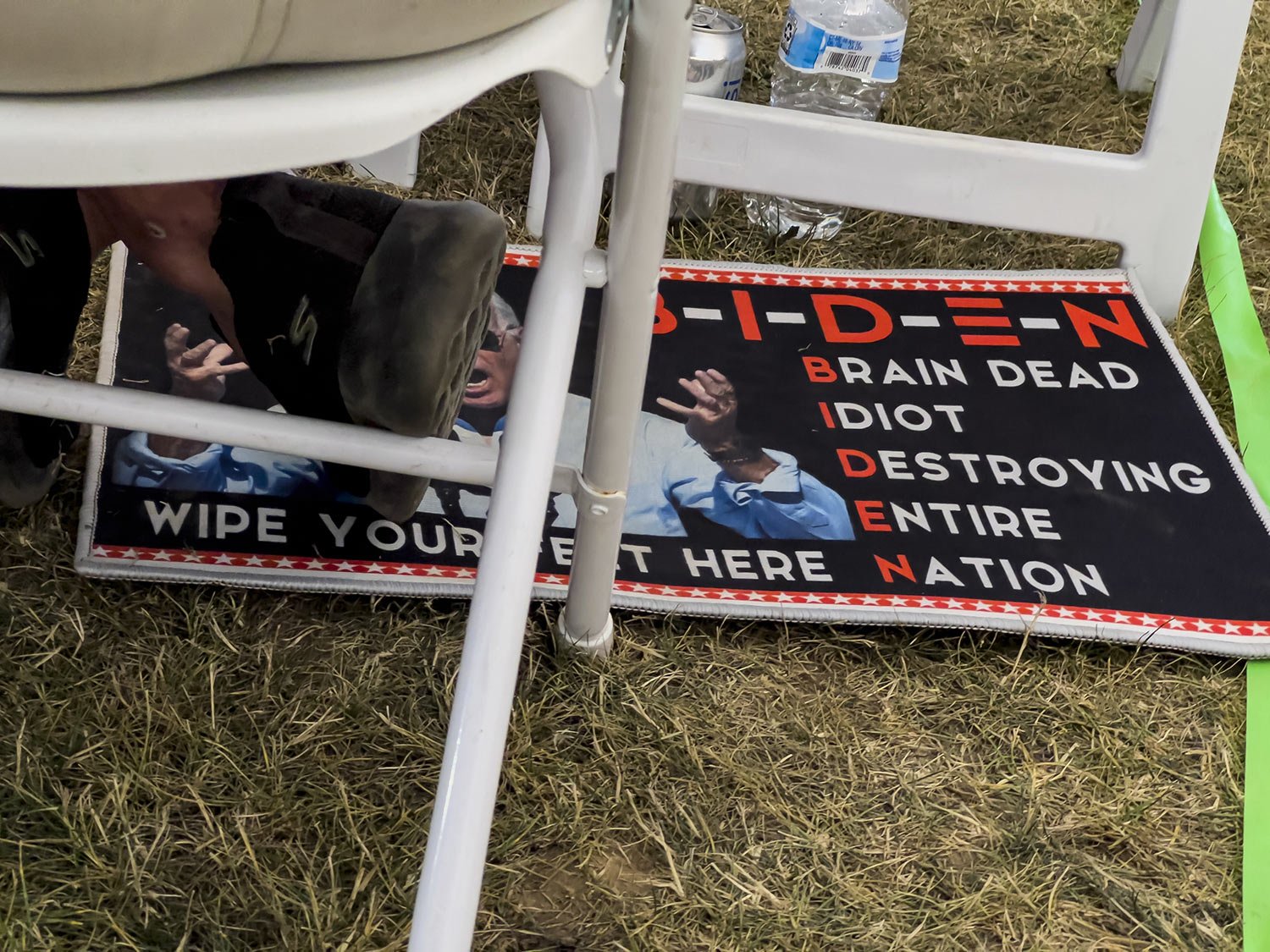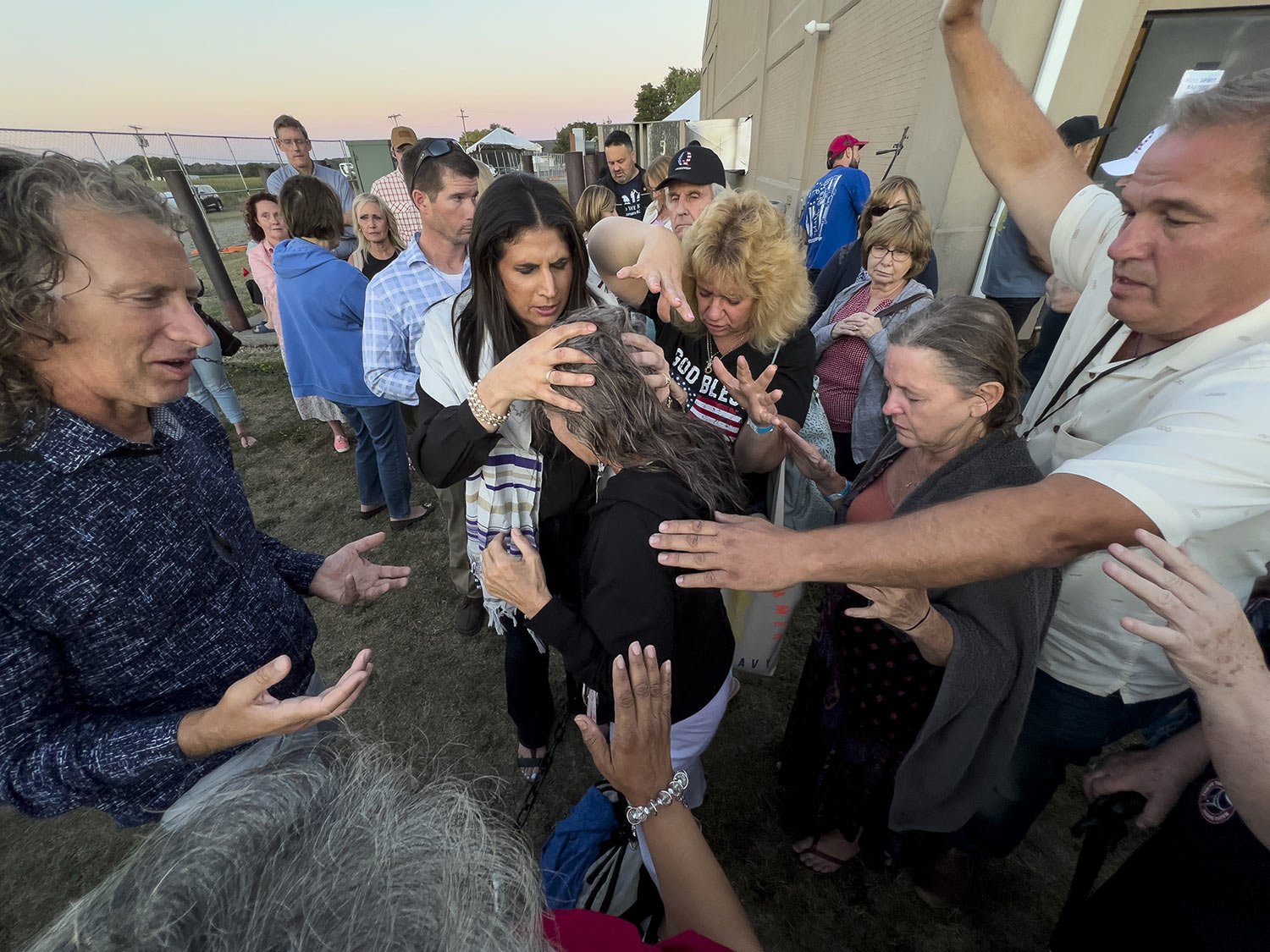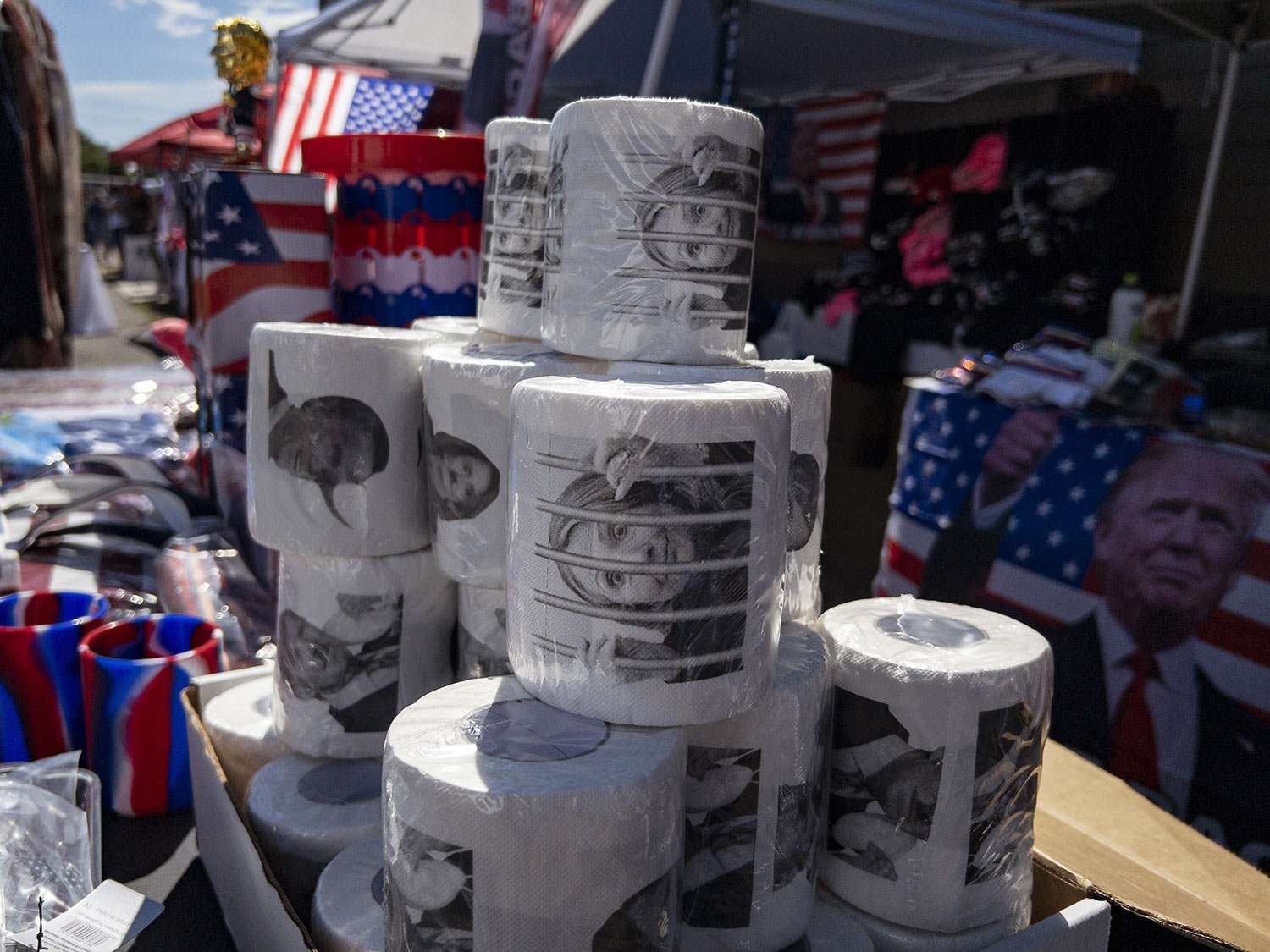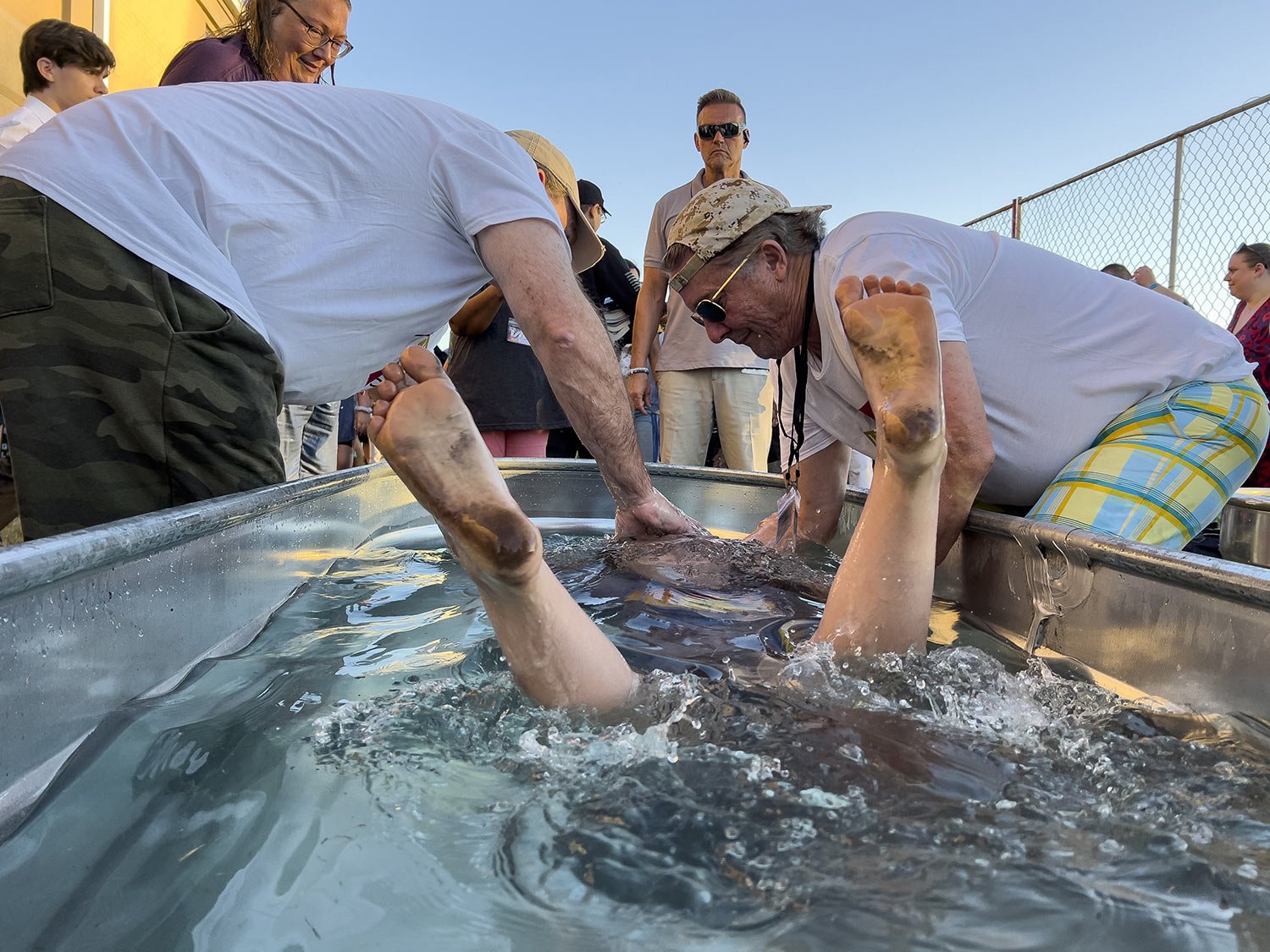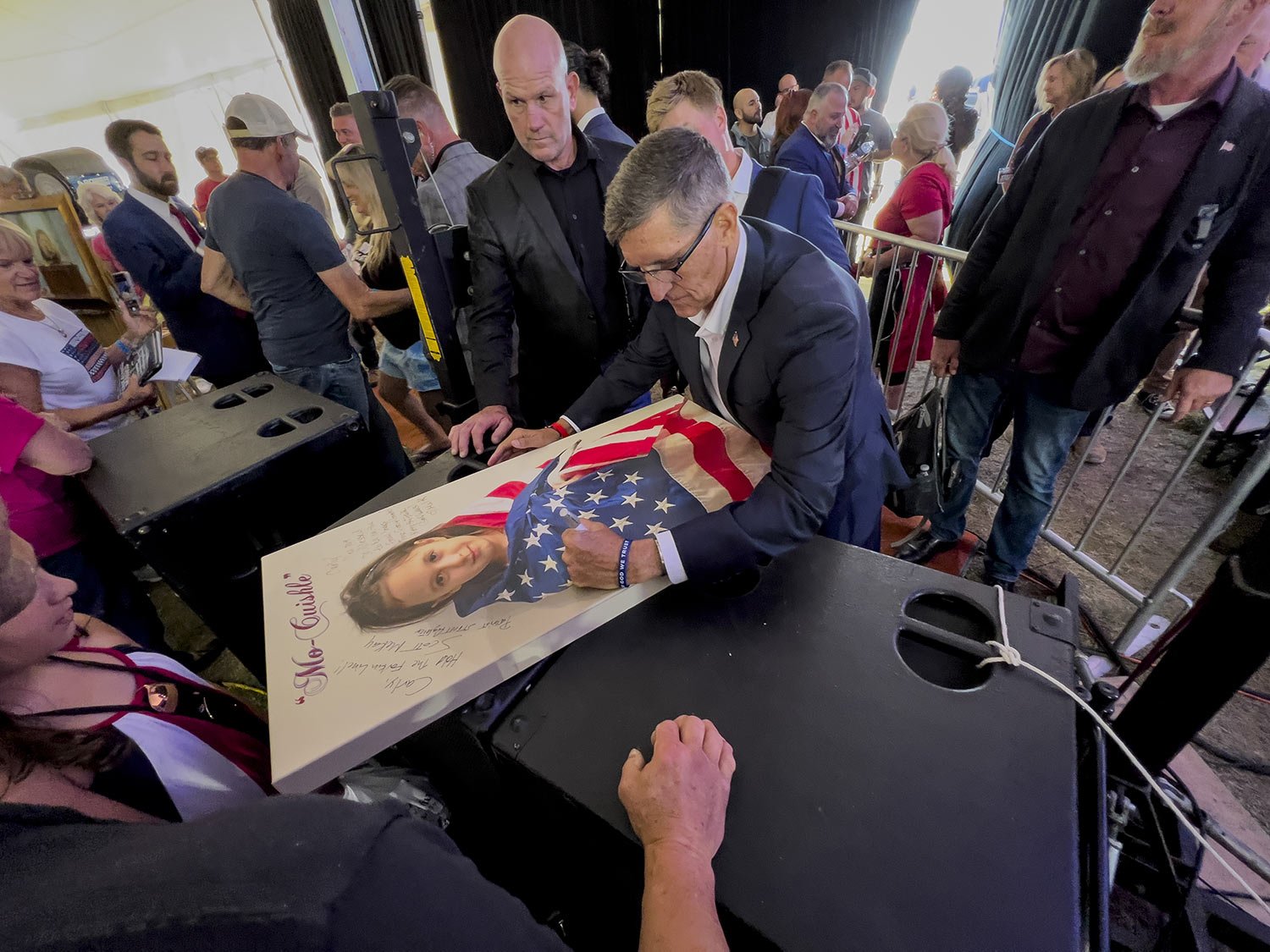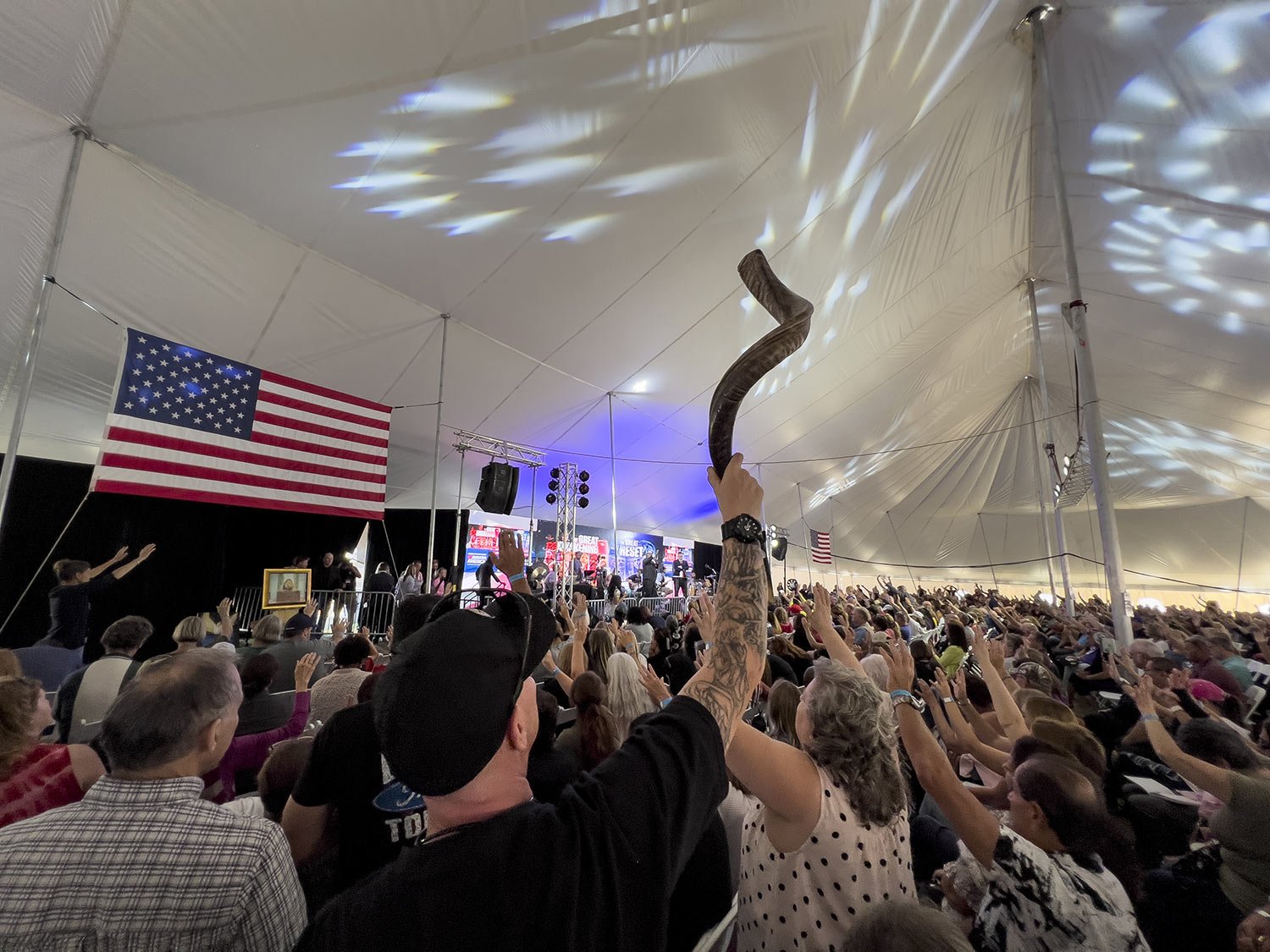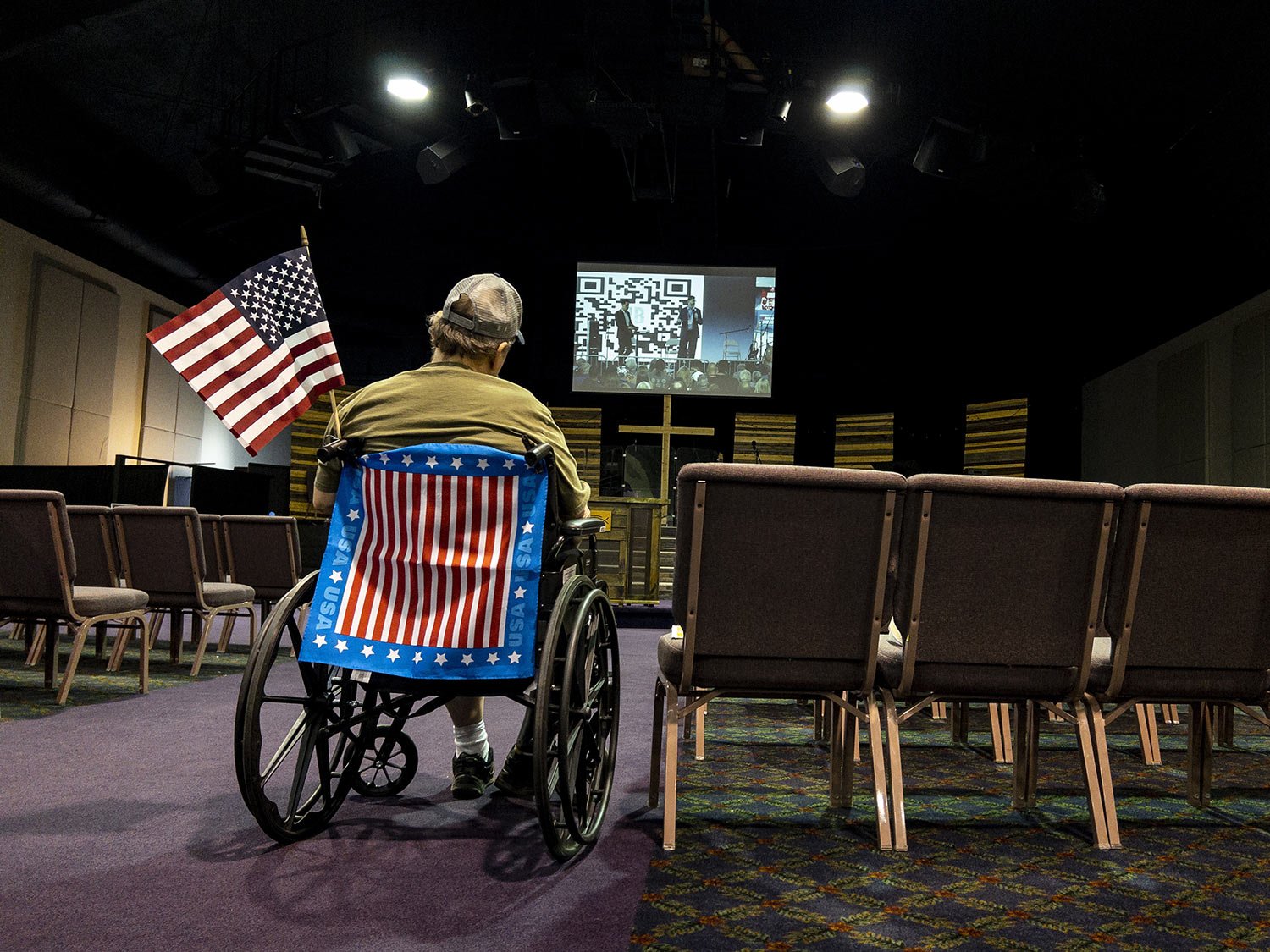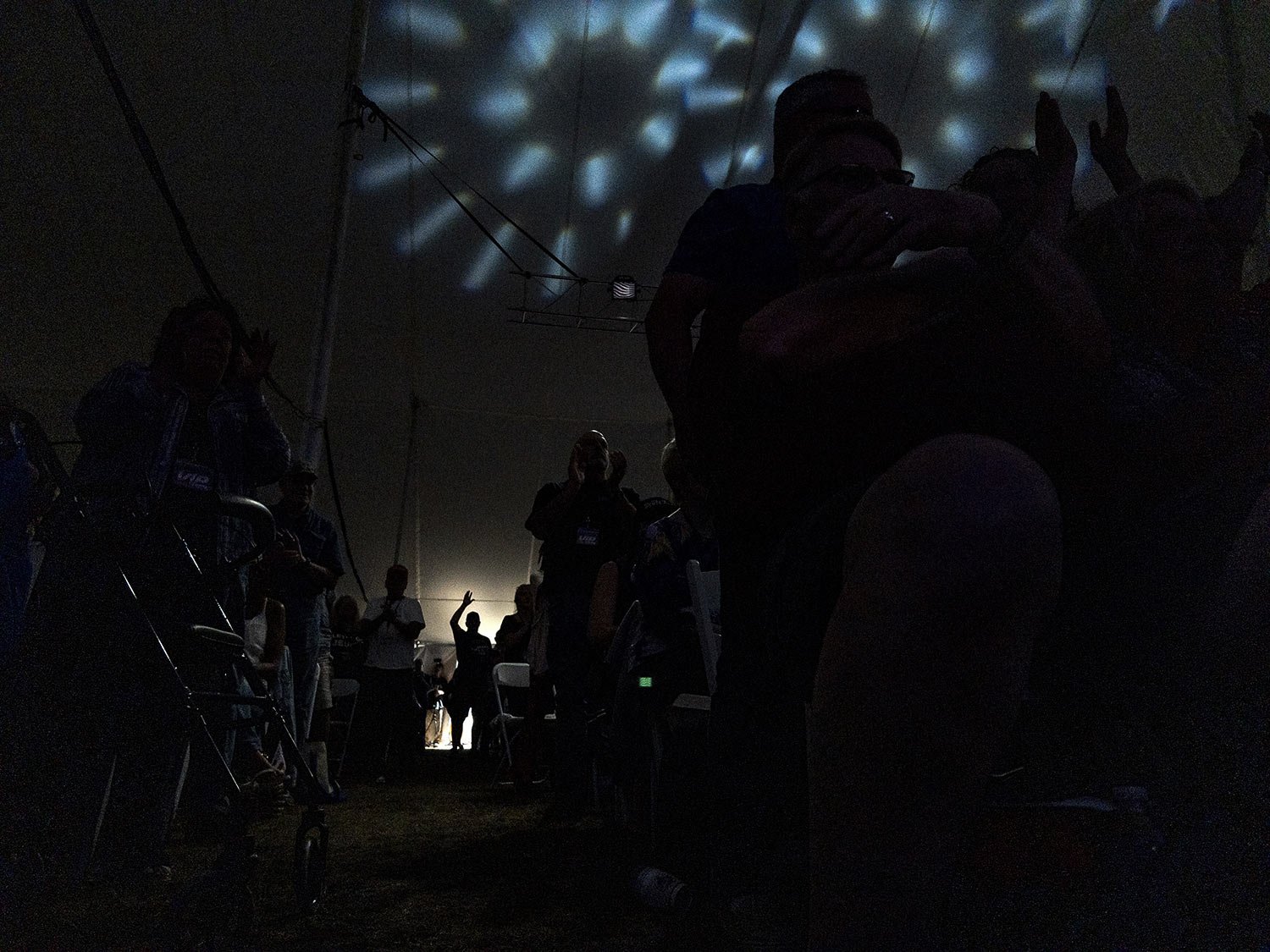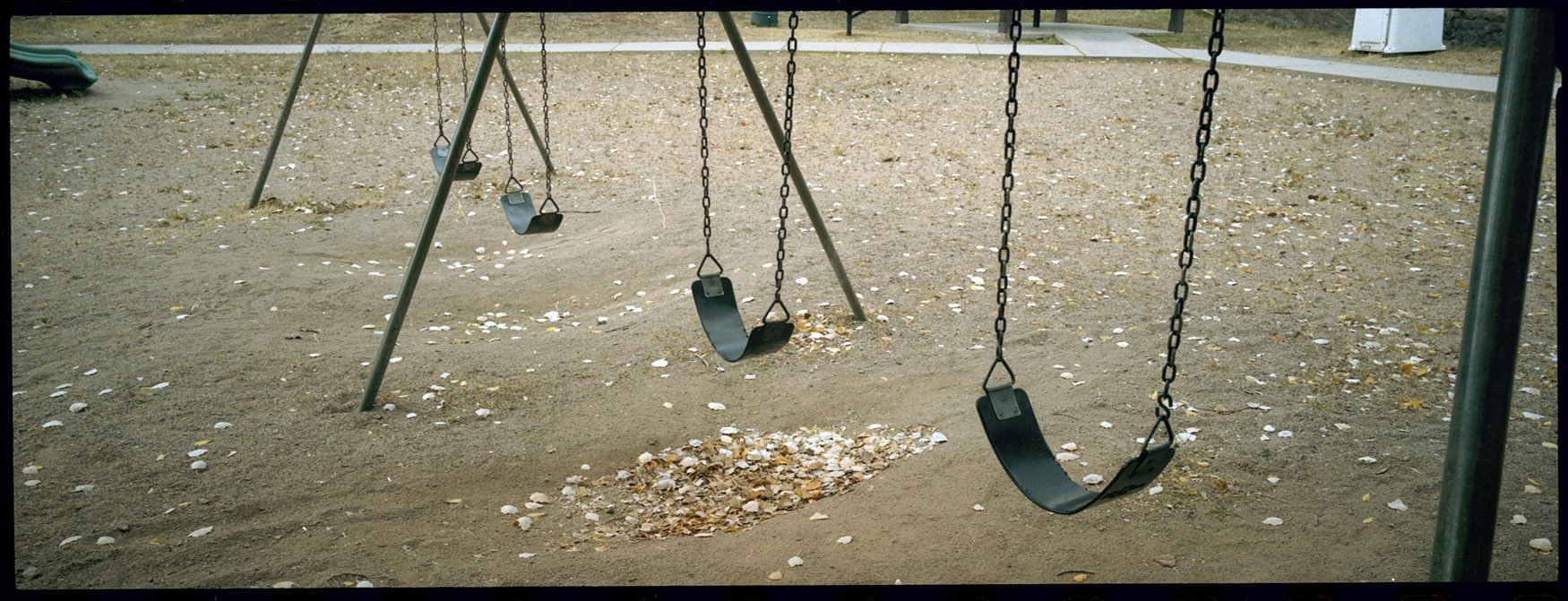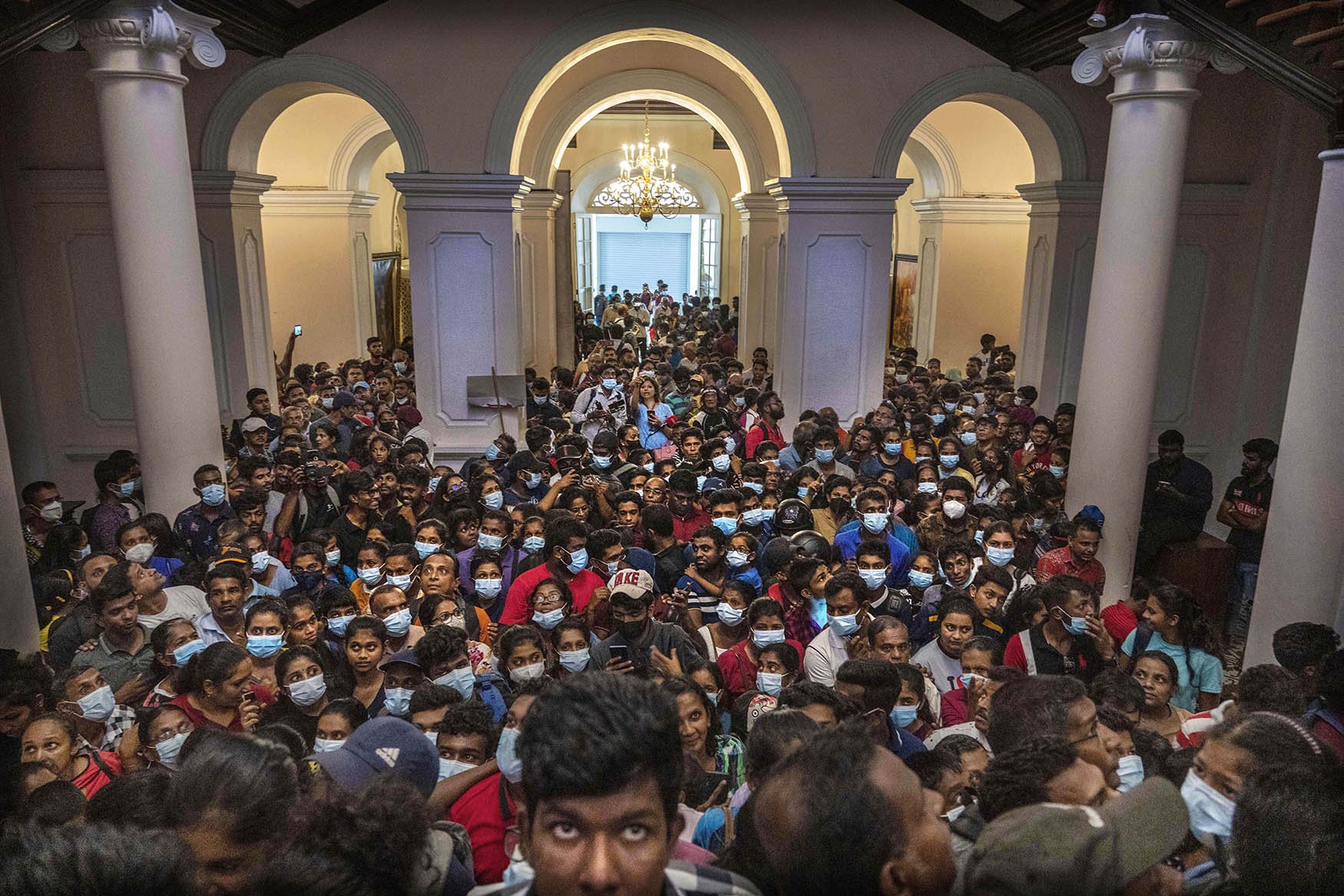Behind the lens: Photographing the 'Army of God'

In this series, Associated Press photographers talk about their 2022 assignments, and share some of the stories behind the images.
THE PLACE: Batavia, New York, United States
THE STORY: Michael Flynn’s ReAwaken road show recruits ‘Army of God’
THE PHOTOGRAPHER: Carolyn Kaster
Carolyn Kaster launches a drone to photograph the coast of Perce, Quebec, Canada, Sept. 15, 2022. Photo by Lynn Berry
“It’s a cell phone kind of life. Everybody was taking selfies with each other and I just kind of worked myself into the rhythm of that event.”
ON THE PREP WORK INVOLVED
I did some groundwork before I went there. I got there a day early. I didn’t stay at a hotel, I stayed at a local B&B and started talking to people. I went around the site, I went to a restaurant that had the most cars — just trying to get a sense of what the community was like, even though I knew that mostly people from the outside were coming to the event. I found where the hospital was, I found where the two police stations were. I did that kind of thing just to really acclimate myself to the physical surroundings. And I looked at what people were wearing, I tried to be just kind of low frequency, just kind of a blank slate going in.
I didn’t paint myself as anything other than what I was. But I didn’t advertise it, either. If anyone asked me what I was doing, I told them who I was and where I was from. We’re in the information business, and I believe in telling the truth. I felt really strongly about telling people who I was if they wanted to know.
People in the audience pray during the ReAwaken America Tour at Cornerstone Church in Batavia, N.Y., Aug. 12, 2022. (AP Photo/Carolyn Kaster)
ON CONNECTING WITH PEOPLE WHO MIGHT NOT TRUST YOU
I kind of opened myself up to people. And people love to talk, too. So I didn’t really take pictures for the first half of the first day. I just really observed and saw the rhythm of how people were taking pictures. It’s a cell phone kind of life. Everybody was taking selfies with each other and I just kind of worked myself into the rhythm of that event. You do this thing as a photographer where after a while people get used to seeing you. And I think that that worked well. I told a couple people who asked me who I was. And I told them where I was from. I told them what I was doing. But I didn’t hang out with the reporter, Michelle Smith. I didn’t act like a reporter. I talked to people at the event more than I talked to my colleague. That rapport made it possible to get the images I needed. It was a process. Definitely.
Roger Stone poses with attendees for a group photo alongside a painting by Elisabeth Miller, titled "Lion of Judah on the Resolute Desk," during the ReAwaken America Tour at Cornerstone Church in Batavia, N.Y., Aug. 12, 2022. (AP Photo/Carolyn Kaster)
ON BEING AN INFORMED PHOTOGRAPHER
It’s like covering a baseball game. You have to know who’s going to who’s going to set a record and who the key players are, and you go in knowing the basic background information so you can tell the story of the game. You have to give yourself context. You have to know who’s there and why they’re there. And you have to ask people these questions. That’s just how how this kind of work works.
I see it as a dance between the two halves of my visual brain. There’s this reactionary brain and this reactionary method, like breaking news. And then there’s the more documentary side, which is a more contemplative side and is not so reactionary or knee jerk. It’s not a car crash; it’s more trying to capture a culture and a feeling and a texture and the frequency of a thing. That takes some looking around.
Like the woman praying along the fence line to the American flag. That took some looking around to find that, but it really spoke to me about what that event was. I had to look around to find that doormat of Biden under that man’s feet. And that adds to the texture. It wasn’t just the person yelling on the stage. It takes some looking around. Observing and asking how people are relating to an event takes time.
As a professional photographer, my craft is capturing the scene. But I really believe the more time you have, the richer the pictures can be, the more nuanced they can be. You can actually find where the emotion is, where things meet and where the energy is. It takes some looking around and being able to get out of your own head.
Lead photo: A woman is baptized during the ReAwaken America Tour at Cornerstone Church in Batavia, N.Y., Aug. 12, 2022. (AP Photo/Carolyn Kaster)




